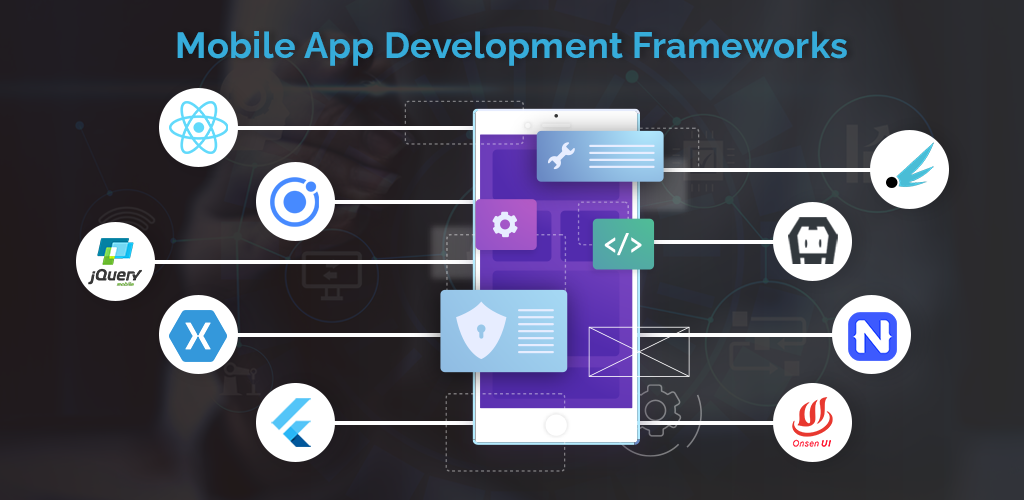In today’s fast-paced digital world, choosing the right mobile app development framework is crucial for creating robust, scalable, and user-friendly applications. With a myriad of frameworks available, making the right choice can be overwhelming. For businesses seeking top-notch mobile application development services in Dubai, selecting the appropriate framework is even more critical to meet the high standards of the market. This guide provides a comparative analysis of the top mobile app development frameworks to help you make an informed decision.
Understanding Mobile App Development Frameworks
Mobile app development frameworks are tools or software libraries that provide a fundamental structure to support the development of mobile applications. They offer pre-built components, libraries, and functionalities, enabling developers to build apps more efficiently.
Top Mobile App Development Frameworks
Here are some of the leading frameworks used in the industry:
- React Native
- Flutter
- Xamarin
- Ionic
- Swift
- Kotlin
1. React Native
Overview: Developed by Facebook, React Native is one of the most popular frameworks for building cross-platform mobile applications. It allows developers to use the same codebase for both iOS and Android, significantly reducing development time and costs.
Pros:
- Code Reusability: Write once, use anywhere.
- Large Community Support: Extensive resources and community support.
- Hot Reloading: Enables immediate updates without recompiling the entire app.
- Performance: Near-native performance.
Cons:
- Complex UI: Building complex UIs can be challenging.
- Native Modules: Sometimes requires native modules, adding complexity.
Ideal For: Companies looking for a cost-effective, time-efficient solution for developing high-performance cross-platform apps.
2. Flutter
Overview: Flutter, developed by Google, is another popular framework for cross-platform app development. It uses the Dart programming language and provides a rich set of pre-designed widgets.
Pros:
- Fast Development: Hot reload and rich set of widgets.
- High Performance: Compiles to native ARM code.
- Customizable UI: Extensive widget library for customizable UIs.
Cons:
- Dart Language: Learning curve for those unfamiliar with Dart.
- Large App Size: Flutter apps can be larger in size.
Ideal For: Developers seeking a flexible, high-performance framework with a focus on customizable UIs.
3. Xamarin
Overview: Owned by Microsoft, Xamarin allows developers to build native apps for iOS, Android, and Windows using C# and .NET.
Pros:
- Code Sharing: High code sharing across platforms.
- Native Performance: Access to native APIs for better performance.
- Strong Support: Backed by Microsoft with strong support and resources.
Cons:
- App Size: Apps can be larger compared to native apps.
- Platform-Specific Code: May require platform-specific adjustments.
Ideal For: Enterprises with existing .NET infrastructure and developers proficient in C#.
4. Ionic
Overview: Ionic is an open-source framework that allows developers to build hybrid mobile apps using web technologies like HTML, CSS, and JavaScript.
Pros:
- Web Technology: Leverages familiar web technologies.
- Cross-Platform: Single codebase for multiple platforms.
- Ease of Use: Quick learning curve and extensive documentation.
Cons:
- Performance: Not as high-performing as native frameworks.
- Native Functionality: May require plugins for native functionality.
Ideal For: Web developers transitioning to mobile app development and projects needing rapid prototyping.
5. Swift
Overview: Swift is Apple’s programming language for developing iOS and macOS applications. It provides powerful performance and a streamlined syntax.
Pros:
- Performance: Optimized for Apple devices with high performance.
- Safety: Strong typing and error handling.
- Interoperability: Seamless integration with Objective-C.
Cons:
- Platform Restriction: Limited to Apple ecosystems.
- Learning Curve: Requires learning a new language if not already familiar.
Ideal For: Developers focused on building high-performance, native iOS apps.
6. Kotlin
Overview: Kotlin is a statically typed programming language developed by JetBrains and fully supported by Google for Android development.
Pros:
- Interoperability: Fully interoperable with Java.
- Concise Syntax: Reduces boilerplate code.
- Performance: High performance on Android.
Cons:
- Learning Curve: Requires learning for Java developers.
- Limited Resources: Smaller community compared to Java.
Ideal For: Android developers seeking a modern, efficient language for native development.
Conclusion
Choosing the right mobile app development framework depends on various factors, including your project requirements, budget, target audience, and the expertise of your development team. For businesses seeking mobile application development services in Dubai, understanding the strengths and limitations of each framework is crucial to making an informed decision.
React Native and Flutter are excellent choices for cross-platform development, offering efficiency and performance. Xamarin is ideal for enterprises with a .NET background, while Ionic provides a swift transition for web developers. For native development, Swift and Kotlin offer powerful capabilities for iOS and Android, respectively.
Ultimately, the right framework will align with your specific needs and goals, ensuring a successful mobile app that delights users and stands out in the competitive market. By carefully evaluating the features, pros, and cons of each framework, you can choose the best tool for your next mobile app development project.












